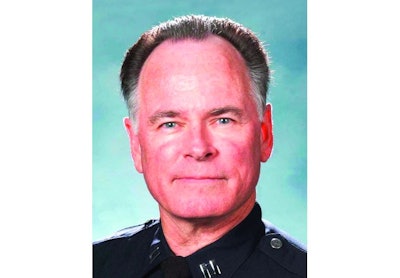 Greg Meyer
Greg Meyer
Body-worn cameras will be a game-changer just as body-worn radios, ballistic vests, and TASERs were game-changers in years past.
But no new law enforcement technology is the be-all, end-all "silver bullet" that people often think it will be. Body-worn radios changed our tactics and improved our safety as long as we didn't over-rely on them and take chances we would not have taken before. Ballistic vests have saved many lives, but not all officers wear them, which means some officers are still dying from shots to the torso that would have been stopped by vests. TASERs have prevented many shootings and other major uses of force, but are sometimes used in situations in which they should not be. All of these tools have required policy and training adaptations as we translate the concept to the reality.
And so it will be with body cameras. They will be a very valuable tool. But it won't always be the video they capture that will be the most useful evidence.
I predict that the audio of many incidents will be more important than the video. Having already seen several body camera incidents in my consulting work, it is often the case that the camera is not pointing at the action while the officer is running or fighting or shooting. But the audio picks up the sounds of the incident, including the words of the officer and the suspect, the sounds of the TASER or the baton strikes or the gunshots, and when someone is out of breath.
Body camera footage will often be persuasive evidence against your suspect when he or she is facing a judge and jury. And if you are unlucky enough to be sued or prosecuted, body camera footage may be a big factor in establishing your credibility, just as cellphone video, security video, and dash-cam video already are.
One of the great advantages of body cameras is they will help protect you against false complaints by members of the public who don't like what you did. But when I mentioned the value of body cameras in helping prosecute people who make false complaints against police during a national meeting of police executives in 2013, the deputy attorney general from the Department of Justice's Civil Rights Division nearly had a coronary. She stood up and responded that "The Civil Rights Division would never support the prosecution of citizens who make false complaints against police officers." We have a new attorney general, Loretta Lynch, now, and hopefully that anti-police attitude will change. Time will tell.
I have seen many articles on the advantages and limitations of body cameras in the past few years, and have produced a couple of seminars on the subject. One of the most important articles on the subject that I have seen appeared in the May 2015 issue of The Police Chief, which is the magazine of the International Association of Chiefs of Police (IACP). The article is titled, "Efficacy of Police Body Cameras for Evidentiary Purposes: Fact or Fallacy?" and was written by Lt. Col. Craig E. Geis, U.S. Army (ret.), and David M. Blake of the California Training Institute.
The IACP article highlights the fact that the various models of police body cameras have a field of view ranging from 95 degrees to 170 degrees; but, the "normal useful field of view in human vision, the area from which information can be extracted at a brief glance without eye or head movements, is 55 to 60 degrees under optimal, normal stress." Thus, the camera will record more information and at a higher quality than a human can see. The camera does not have a heart, or adrenalin, or the ability to perceive things, or a fear of death or great bodily injury. "Hence, human perception and memory of an event can be dramatically different than what is recorded by the camera. This difference increases substantially when the stress and arousal of a use-of-force or officer-involved shooting event is a factor."
One more prediction: Academic studies of body camera footage in the coming years will show that you are doing an excellent job handling the challenges that come with your daily work. The irrational, violent, resistive, assaultive people you encounter will be there for all to see (or hear). The vast majority who submit peacefully to your arrest will also be there.
Greg Meyer is a retired Los Angeles Police Department captain and a member of the POLICE Advisory Board.